Adopting the right hospitality marketing strategy can be crucial for your business’s long-term success, helping you attract customers, optimize revenue, and build recognition and trust. Achieving this requires you to keep up with the latest hospitality marketing trends. In this article, you can learn more about hospitality trends for 2026.
Table of Contents:
- What is Hospitality Marketing?
- Why is Hospitality Marketing Important?
- 19 Hospitality Marketing Trends for 2026
- 1. Sustainability and Eco-Friendly Practices
- 2. Find New Hospitality Marketing Trends Through Data
- 3. Remarketing
- 4. Personalization Marketing
- 5. Private Branded Messages
- 6. WiFi for Marketing & Analytics
- 7. Artificial Intelligence (AI)
- 8. Promote Safety in Marketing and Guest Communication
- 9. Highlight Value and Offer Flexible Cancellations
- 10. Customer Experience Marketing
- 11. Use Virtual Reality Hospitality Technology
- 12. Improve Customer Experience & Satisfaction With Chatbots
- 13. Voice Search
- 14. Augmented Reality
- 15. Video Marketing
- 16. Short-Form Video Content
- 17. Influencer Marketing
- 18. User-Generated Content
- 19. Fitness and Wellness Offerings
- Connect to Travel Agencies to Increase Bookings
- Want to Learn More About Hospitality Marketing Strategies?
What Is Hospitality Marketing?
Hospitality marketing is centered on considering the business in terms of customer needs and satisfaction. Hospitality marketing looks at how different sectors of the hospitality industry (e.g., accommodations, food and drink, tourism, and travel) develop marketing strategies to promote their products or services, increasing revenue.
As of 2025, the global hospitality industry is valued at approximately $4.9 trillion, and it’s on track to grow to $7.2 trillion by 2029, according to data from EHL Hospitality Insights. This growth reflects not only a rebound from past disruptions but also a shift toward more personalized, experience-driven travel.
As Will Guidara, best-selling author, notes:
“We are entering into a hospitality economy” – suggesting that service excellence, human interaction, and co-creation of memorable experiences are what hospitality brands need as differentiators.
Why Is Hospitality Marketing Important?
Since the hospitality industry mainly focuses on creating and maintaining positive customer experiences and relationships, marketing becomes important to ensure the industry’s success. To attract more customers to your hotel or travel business, you need to efficiently advertise on different digital channels and be where your niche audience is.
In fact, 80% of travelers begin their hotel search online, and over half (52%) make direct bookings when they encounter personalized and relevant marketing, according to the Trends Global Survey. This shift significantly reduces reliance on costly third-party platforms and boosts profit margins.
The return on marketing investment is tangible. Hotels that adopt data-driven and guest-focused marketing approaches have seen the average number of annual visits per guest increase from 1.3 to 4.6, while the length of stay has grown from 1.9 to 3.2 nights.
With marketing, keeping up with the latest trends will give you the best possible chance of reaching your target audience and conveying what you want to convey. Meanwhile, embracing new technology can help make a business more efficient, while in other cases, it can improve the overall customer experience.
Liselotte De Maar, Managing Director, Accenture Travel Strategy, states:
“Hoteliers will welcome the opportunity to tap into consumers’ growing demand for travel and evolving opportunities to harness live sports and entertainment as an additional revenue generator. There is a balance to strike in delivering on customer expectations, and keeping a careful watch on the bottom line. Leveraging data and embedding technologies such as artificial intelligence can boost personalization of experiences across rising new customer segments, along with agility and cost-effectiveness. Done well, this can lead to increased loyalty, strengthened relationships and new growth opportunities.”
19 Hospitality Marketing Trends of 2026
Keeping up with the latest trends within hospitality marketing is vital, but it is equally important to understand the context of these trends, too. With this in mind, below, you will find a breakdown of trends relevant to the hospitality industry as a whole and trends that emerged in response to the pandemic and are still relevant now.
1. Sustainability and Eco-Friendly Practices
Sustainability is all about meeting today’s needs without compromising the future. According to Precedence Research, the sustainable tourism market is valued at $3.56 billion in 2025, forecasted to reach $11.39 billion by 2034 with a robust 11.39% CAGR. Sustainability measures tie in closely with eco-friendly practices, which are specifically focused on avoiding or minimizing harm to the environment.
Modern hospitality marketing efforts often place a high value on sustainability and eco-friendliness because customers are increasingly aware of these concepts. Some customers also steer clear of brands that do not behave responsibly. This sentiment reflects in booking behavior, where 45% find accommodations with sustainable labels appealing and 43% of travelers are willing to pay extra for sustainable certification, according to Booking.com’s Sustainable Report.
Specific sustainability and eco-friendly measures may include using renewable energy sources, recycling waste, using locally-sourced ingredients in restaurants, and taking steps to conserve energy. Businesses can also reduce their carbon footprint by reducing transportation distances and making efficient use of electrical appliances. Hotels, restaurants, and similar businesses can highlight the steps they have taken in hospitality marketing content. This makes it easier to appeal to environmentally-conscious travelers.
Danielle D’Silva, Head of Sustainability at Booking.com, explains:
“While many travelers have retained a sense of optimism and a desire to have a more positive impact, there is a critical opportunity for the industry to accelerate efforts to make those choices easier for everyone.” “It’s important that we continue ensuring that more sustainable options are not only readily available, but also easy to trust and understand.”
2. Find New Hospitality Marketing Trends Through Data
With the increased travel risk still in people’s minds, it is understandable that those in hospitality management would attempt to predict how it will affect customer behavior. Still, this guesswork is no substitute for using data and clear evidence. In particular, you should look into your website analytics and bookings data and try to pinpoint trends.
Which demographics are still interested in making bookings, and which have fallen away? Which market segments are growing, and which are taking longer to return? Is there any relevant geographical data to consider? Once you have insights into how customers behave, you can adjust your hospitality marketing efforts accordingly.
The results can be transformative. Hotels using advanced analytics and demand forecasting tools report a 5–10% increase in revenue and up to a 20% reduction in operational costs, according to industry research from Atlan. These tools enable more precise targeting and smarter pricing strategies that are critical in a highly competitive market.
Dr. Jean-Philippe Weisskopf, Assistant Professor of Finance at EHL, puts it this way:
“Tools capable of crunching large swaths of user data are offering hospitality businesses of all sizes the key to unlock smarter financial decisions. With machine learning and real-time analytics, leaders can now predict trends and make moves faster, turning data-driven strategies into a competitive edge.”
3. Remarketing
This marketing tool targets potential customers who have viewed your website or shown interest in your services. Remarketing is a way of re-engaging people who have spent time browsing pages on your website without booking a room. Nearly 98% of website visitors leave without converting. Remarketing helps capture this lost opportunity.
Retargeted ads are 10 times more likely to be clicked than standard display ads, and 26% of users return to a site after seeing a retargeting campaign. According to Skai, retargeting ads deliver an average 400% return on investment, and cart abandonment campaigns in hospitality achieve average booking values of $1,189 with five room nights per reservation.
You can use this tool to reconnect with those who have visited your site and offer them a discount to encourage them to return. For example, you can set up this strategy through Google Analytics by user demographics or interests. Filtering these searches to collect the information you need about the people who visit your website is also possible.
Video: What is Remarketing?
4. Personalization Hospitality Marketing
Personalized marketing allows companies to deliver individualized content to target customers through automation technology and data collection. Personalization marketing aims to engage potential customers by communicating with them as individuals. Hotels and tour operators need to personalize their services for their guests and clients through targeted emails.
A Salesforce study found that 73% of travelers expect brands to understand their unique needs, and 72% are more likely to remain loyal to brands that personalize communication. Experian research shows personalized hotel emails generate six times higher transaction rates than generic campaigns. Hotels using guest data for customized subject lines achieve 26% higher open rates, while targeted content based on booking history significantly improves conversion performance.
For example, targeted emails can be sent to potential customers whenever the travel agency or hotel offers an upcoming discount. Personalization marketing is one of the most direct hospitality marketing strategies to establish a more personal relationship with your customers and encourage them to make a return visit.
Jasperina de Vries from McKinsey notes:
“Personalization is something that is slowly becoming more of a standard. Hospitality players’ marketing strategy will no longer be about establishing eight or 10 fixed personas for the next two or three years, but rather hyper-personalizing for a variety of use cases.”
Video: Personalized Marketing by Nicole Martin
You can read more detailed information and examples of personalization marketing in the article “Ways Personalization Marketing Can Benefit the Hospitality Industry.”
5. Private Branded Messages
An area of hospitality marketing that is still very much emerging is using private, branded messages across social media and mobile channels. These messages are often personalized, include an element of customer service, and are a great opportunity to build more meaningful connections with a target audience. Modern solutions include multi-channel messaging platforms that integrate SMS, WhatsApp, Facebook Messenger, and Instagram DMs, fully connected to hotel PMS and CRM systems.
Direct messages can be used to share discount codes, promote new products, respond to questions or complaints, encourage feedback, and more. Messages should be crafted to align with your wider branding strategy and the image you are trying to present. This may require collaboration between marketing and customer service.
Hotels implementing guest messaging see an increased revenue of 10-15% average through upsell opportunities, reduced front desk workload, improved guest satisfaction scores, and higher direct bookings, according to Hotel Tech News.
6. WiFi for Marketing & Analytics
Another rapidly growing aspect of hospitality marketing involves using WiFi data for marketing and analytics. According to Mordor Intelligence, the global WiFi analytics market is valued at $6.12 billion and is projected to reach $15.40 billion by 2030 at a 20.26% CAGR. The hospitality sector is leading this trend with over 30% of market usage.
Within hotels, restaurants, and other businesses, WiFi data can be used to track individuals and determine whether they are currently on-site. This then allows for more tailored marketing messages.
For example, in a hotel, you could send a marketing message to guests who are actually in the hotel while leaving guests currently located off-site to enjoy their day. You can also potentially use WiFi signals and data for analytics purposes, such as identifying how many people are on-site at any given time.
WiFi marketing proves to be highly effective. According to Forbes, 72% of businesses using WiFi for marketing report improved sales performance, and 69% achieve measurable success in driving foot traffic.
Video: Wifi Marketing Automation
7. Artificial Intelligence (AI)
Artificial intelligence can streamline processes and provide valuable insights. According to the Business Research Company report, the global AI market in hospitality is projected to reach $0.92 billion by 2028 with a remarkable 57.5% CAGR. Current adoption is already substantial. Over 80% of hotels use AI to personalize guest offerings, while 47% of hospitality businesses plan to increase AI investments over the next two years.
Most online hotel room seekers tend to use aggregator websites to book their accommodation, while some may land on a hotel’s homepage but leave without booking. In most cases, users would prefer to speak with hotel staff without having to enter preferred dates and check-in details, which can be quite time-consuming.
You can provide personalized service and develop a robust system by using artificial intelligence chatbots on your website. Thanks to AI technology, your guests can place their room service requests through your AI-enabled website, saving your hotel staff time. The competitive advantage is clear. Hotels using AI for predictive maintenance save up to 30% in maintenance costs, while AI-driven housekeeping robots improve efficiency by 20% in room maintenance.
Guillaume Benezech, Senior Director of Global Brand Management at Ritz-Carlton, warns:
“We underestimated the power of AI in hospitality. If we don’t move fast enough to keep up with the pace AI is taking, we risk falling behind.”
Table: Use Cases of Artificial Intelligence in Hospitality
| Use Case | Description | Benefit for Hotel | Risk |
|---|---|---|---|
| Chatbots for Customer Service | Implement AI-powered chatbots for support. | Provides instant customer service, reducing workload on human staff and improving guest satisfaction. | Misinterpretation of queries, leading to incorrect responses and potential dissatisfaction. |
| Personalized Recommendations | Use AI algorithms for personalized suggestions. | Enhances guest experience by offering tailored services and activities, leading to increased customer loyalty. | Privacy concerns regarding the collection and use of guest data for personalization. |
| Predictive Maintenance | Employ AI to predict and prevent equipment issues. | Reduces downtime and maintenance costs by addressing potential problems before they impact guest services. | Relies on accurate data and models; false predictions may lead to unnecessary maintenance expenses. |
Find more detailed information and examples of artificial intelligence use cases in the hospitality industry in the article “How to use Artificial Intelligence in the Hospitality Industry.”
8. Promote Safety in Marketing and Guest Communication
One of the most significant hospitality trends in response to the COVID-19 pandemic is highlighting safety procedures, hygiene policies, and other decisions intended to protect your customers. According to the American Hotel & Lodging Association (AHLA) State of the Industry Report, 78% of travelers consider cleanliness a top priority when booking hotels. Moreover, 81% of travelers say they feel more comfortable staying at hotels that have implemented enhanced safety protocols and standards.
This could mean increased cleaning, relocation of tables and chairs to allow for social distancing, enforcement of mask-wearing in certain parts of your premises or by staff members, and expanded use of contactless payments and mobile apps. The key is ensuring these changes are communicated to customers before arrival.
For example, in an ad released by Marriott Bonvoy titled “Joy is Near,” which shows a family of three enjoying their vacation in one of the Marriott hotels, it is like any other advertisement except for the fact that two important safety and hygiene initiatives are highlighted by the company.
Chip Rogers, President and CEO of the American Hotel & Lodging Association, states:
“The hotel industry is united to enhance our already rigorous cleaning protocols for the health and safety of our guests, and it’s working. It’s more important than ever that guests follow our Safe Stay Guest Checklist so they understand what is expected of them, no matter where they stay. Travelers across the country looking to include a hotel stay in their upcoming vacation plans know that with the implementation of Safe Stay, hotels will be safer and cleaner than ever before.”
You can learn more by reading the “Hygiene is the New Marketing Message for Hotels” article.
9. Highlight Value and Offer Flexible Cancellations
Another important way hotels responded to COVID was by realigning and focusing on what makes their hospitality business unique. This could be location, customer reviews, the hotel or restaurant’s design, the bar’s theme, or the range of facilities. Regardless, knowing your USPs makes it easier to sell based on value.
According to Phocuswright’s travel research report, 70% of travelers say they would choose a hotel with flexible booking policies over rigid terms, even paying slightly more. The willingness to pay for flexibility is substantial. According to a Statista survey of US adults, about 29% of Gen Z adults and 28% of Millennials are willing to pay an extra $50 or more for a hotel that offers flexible cancellation.
While many businesses compete based on pricing, the reality is that many customers are happy to pay more for guaranteed quality, excellent service, or a unique experience. Consider some of the things you can throw into your offering to make it stand out from what rivals are selling.
It is also sensible to offer a generous cancellation policy, which allows customers to re-book with minimal hassle. The opportunity for short-notice cancellations gives travelers peace of mind and acts as an incentive to book in advance without the risk of losing money.
10. Customer Experience Hospitality Marketing
In the competitive hospitality industry, customer experience is essential in gaining loyalty. Remember that providing excellent customer service doesn’t always result in direct profits. It is crucial to develop comprehensive customer experience marketing plans to meet the needs of your hotel or travel company.
McKinsey research shows that “positive past experiences with the brand” is the top factor consumers cite when choosing travel brands. As per the Salesforce report, the Experience Advantage, brands with strong CX strategy see 1.5x higher revenue growth and 1.8x higher profitability.
You must compile analytics from online customer testimonials on review websites to generate healthy returns and a steady stream of returning clients. This will give you a wealth of information about your customers’ preferences, how your company can improve, and which factors will lead to future conversions. Hotels that focus on creating outstanding guest satisfaction can increase occupancy by up to 20% according to McKinsey & Company research.
Dr. Maggie Chen from EHL Hospitality Business School notes:
“No matter how advanced the technology or sustainable the practices, they mean little if they do not enhance the overall guest experience.”
Video: Customer Experience in the Hospitality Industry
Find more detailed information about customer experience in the hotel industry in the article “Ways to Improve Customer Experience in the Hospitality Industry.”
11. Use Virtual Reality Hospitality Technology
Virtual reality has been one of the recent biggest emerging hospitality technology and marketing trends, and the coronavirus pandemic has only heightened its uses. According to the Torrens University Australia report, VR use in hospitality is expected to grow at a CAGR of 34.2% by 2028. Virtual reality tours provide the ultimate means of experiencing a location from afar, recreating the environment in a way that allows for some exploration and immersion. According to the Statista/Skift Survey, almost 34 percent of global respondents said that they are very interested in using a virtual reality/metaverse experience to tour a hotel (rooms, events venue, conference rooms, etc.) before booking.
For leisure customers, this can offer the opportunity to experience a landmark or tourist attraction or view the inside of a hotel. For event customers, it means the chance to explore wedding or event venues without needing to travel there to view them physically. This is especially valuable at a time when travel is restricted.
Most modern virtual reality tours can be viewed using a standard web browser or VR headset. For example, Best Western uses virtual reality and avatars in its “I Care® Every Guest, Every Time” training program to improve customer service. This led to a 71% drop in guest complaints and higher satisfaction. The brand was also named a top 10 innovative company in AR/VR by Fast Company.
Video: 360 Virtual Tour for Holiday Inn Express Adelaide
In the article “How Virtual Reality (VR) Can Enrich the Hospitality Industry“, find more detailed information and examples about how virtual reality can benefit your business.
12. Improve Customer Experience & Satisfaction With Chatbots
Chatbots can improve the customer experience in several key ways and form a big part of many modern hospitality marketing strategies. Regardless of staff availability, these bots allow rapid responses to customer questions and support multiple languages.
This technology can be used during the booking stage to offer support and encourage the completion of bookings. Bots may also be able to up-sell and cross-sell, potentially helping your business to maximize revenue. According to the Chatbot Market Report by Markets and Markets, the global chatbot market is projected to grow to $15.5 billion by 2028.
According to Hotel Tech Report, 70% of hotel guests find chatbots useful, especially for tasks like requesting wake-up calls, Wi-Fi passwords, checking hotel facility operating hours, and more. The trend is gaining traction across the industry. A Statista and Skift survey found that nearly 50% of travelers are open to staying at hotels that use chatbots or automated messaging for customer service.
The business case is compelling: 80% of hotels use AI-powered chatbots to handle basic inquiries. A report by IBM found that businesses using chatbots can reduce customer service costs by up to 30% while improving customer satisfaction and loyalty.

Dr. Betsy Stringam-Bender, Professor of Hotels & Resorts, New Mexico State University“When guests are seeking basic information, such as check-out time, hours of operation for restaurants and recreational facilities, a chatbot can quickly answer these questions, allowing hotel employees to focus on other guest requests and service. The key is to also provide an option for “the answer is not satisfactory, or I still have questions,” which then connects the guest to a live agent who can further help guests. Other technologies can also help deliver more information to guests to improve on-property sales, such as a QR code for the restaurant menu. This next generation will not call and inquire; instead, they will seek information using their mobile devices.” Click here to read more tips from our Hospitality Marketing Expert Panel. |
Video: Example Chatbot for Restaurants
Read the articles “Reasons Why Every Hotel Needs a Hotel Chatbot” and “What Are the Important Features When Choosing a Hotel Bot?” for additional information.
13. Voice Search
As the next generation of Web users prefers communicating through voice activation, this can be a great opportunity for the hospitality industry. Voice search is a voice control and recognition technology that primarily works with tablets, smartphones, and similar devices.
This marketing trend could soon eliminate the need for Internet users to press buttons or type their search queries online. Hotel guests can book a hotel room via smartphone by just speaking to the device. Through voice search, they can even control the room’s functions, such as lights, music, or heating. It is expected that more online marketers will start investing money into this new trend in the near future. According to Statista, 57% travelers prefer voice assistants for in-room controls, while 48% use them for service requests. It is expected that more online marketers will start investing money into this new trend in the near future. STR reports that hotels using voice search strategies experience a 27% higher mobile booking completion rate, showing how voice can directly support conversions.
Probal Lala, CEO of Fluent.ai, explains the imperative:
“As an increasing number of consumers embrace voice recognition technology at home, hotels will need to deploy this in-room technology to meet the expectations of their tech savvy guests. Consider that millennial travelers, who grew up in the age of digital and have an affinity for technology, will reportedly make up more than 50% of all hotel guests worldwide this year.”
Video: Voice Search Within Hospitality
Find more detailed information and examples about how voice search can benefit your business in the article “How Can Voice Control Benefit the Hospitality Industry?”.
14. Augmented Reality
One of the most exciting hospitality marketing strategies is augmented reality. This tool works by altering one’s perception of their physical surroundings through the use of computer technology. Augmented reality allows hospitality businesses to change the way their clients perceive the environment they are in. According to Grand View Research, the global augmented reality market size is expected to grow at a CAGR of 37.9% from 2025 to 2030.
Hotels, for example, can sell rooms online by enhancing their features through AR. There are hundreds of ways you can entertain your guests through augmented environments, such as allowing the guests to see virtual depictions of their favorite celebrities in the hotel. You can also use this tool to send virtual keys to your guests through their smartphones.
Video: Menu AR – a menu of restaurants in augmented reality
Find more detailed information and examples about how augmented reality can benefit your business in the article “How Augmented Reality is Transforming the Hospitality Industry”.
15. Video Hospitality Marketing
Travel industries and hotels can use video marketing to engage their target audience, from YouTube videos, Instagram, or Snapchat to going Live on Facebook. According to Forbes, 67% of Gen Z users use Instagram for search, while 62% turn to TikTok, surpassing even Google. Gaining brand exposure and capturing your audience’s attention can be done through written content, but to engage them instantly, why not give them easily digestible videos about your hotel or resort? For example, you can use video marketing to capture the relaxing moments guests can enjoy in your hotel’s facilities. Remember that your videos or photos must be high-quality to attract customers.
The range of options available to marketers is almost endless, from live streams of hotel activities to promotional videos highlighting hotel features and interviews with customers sharing their experiences. The growing prevalence of 360-degree video also opens up greater opportunities to fully immerse audiences.
Frank DePino, Principal and Founder of Mediaboom, with over 30 years of hospitality marketing experience, observes:
“The most impactful video marketing for social media is short-form video content between 30-60 seconds that get to the ‘wow’. This is the right ‘byte size’ for both Instagram Reels and TikTok.”
Video: Example W Hotel Barcelona Promotional Trailer
16. Short-Form Video Content
In recent years, one of the most noticeable hospitality marketing trends has been the growth of short-form video content. These videos, which can last as little as a few seconds and are usually under one minute, can be posted across various channels, including Twitter, Facebook, Instagram, TikTok, and YouTube.
Short-form videos are easy for viewers and can be easily shared. They do not use much data, allowing users to view them confidently even when away from WiFi.
According to Proactive Hospitality Solutions, 73% of consumers prefer learning about products and services, including hotels, through short-form videos rather than text. Even better, short-form video has high viral potential. According to Hubspot, nearly half of marketers (47%) say short videos are more likely to go viral, which means a well-crafted post could reach thousands, or even millions, of viewers.
The best hospitality marketers use these videos to highlight key features of their business and their brand values. Videos can also encourage specific actions, such as making a booking, visiting a web page, or following a social media account. For example, Hilton’s 10-minute TikTok campaign resulted in 7 awards and the highest engagement for Hilton’s TikTok content, showing creative applications beyond traditional short formats.

Luminita Mardale, Director of Marketing and Business Development, Vienna House“TikTok is now an essential tool for brands looking to connect directly with customers. Facebook is now described by Gen Z as “a social media platform for old people”. TikTok is more about entertaining information presented in short, engaging snippets. Travellers have been searching for trip ideas online for a long time, and TikTok is now the primary source of inspiration. Create short-form videos that are insightful, engaging and entertaining from all-day hotel activity behind–the–scenes content. Bring TikTok influencers to your property and offer the best environment to create content with your property. Create “did you know” informational videos and direct TikTok users to your website.” Click here to read more tips from our Hospitality Marketing Expert Panel. |
Video: Cinematic Hotel Promo
17. Influencer Marketing
Influencer marketing is an established opportunity for hospitality marketers to remain relevant in a highly competitive industry. According to Global View Research, the global influencer marketing industry is expected to surpass $97 billion by 2030, showing how quickly the space is growing. A report from Expedia Group found that over 70% of travelers said an influencer’s recommendation directly impacted their decision to book, and nearly 75% would consider buying a travel package based on influencer content alone.
Influencer marketing is a digital version of traditional word-of-mouth to increase hotel brand awareness and generate direct bookings. Using this strategy, you can reach a much larger audience and attract more customers to your hotel or travel business through credibility and trust-building among consumers. The ROI is real: for every $1 spent on influencer marketing, hotels generate $6.50 in revenue, according to Hubspot.
For example, your influencer marketing campaign can specifically target young people who are increasingly choosing Airbnb services over conventional hotels. You can engage your potential customers with authentic content that doesn’t sound brand-oriented.
Dr Philippe Masset from EHL Hospitality Business School advises:
“The greatest strength of social media lies in the fact that content is driven by the users themselves. This proximity creates a direct impact, which can be further amplified by engaging influencers and trendsetters to promote new destinations.”
Video: How to Do Influencer Marketing for Your Restaurant or Coffee Shop
18. User-Generated Content
User-generated content is created and shared by online end-users. It can come in different forms, such as testimonials, comments, forums, blog posts, and social publications, to name but a few. When a prospective customer looks for your brand’s content online, he or she will normally read the customer reviews about your company on other websites or social media platforms. Unlike traditional ads, UGC feels honest and personal. According to Nielsen’s Global Trust in Advertising Report, 92% of consumers trust recommendations from friends, family, or other users more than branded advertising.
If you implement user-generated content correctly, you can increase your brand awareness significantly. This strategy will also help you get more room bookings. One effective way is to encourage your guests to share their experiences on social media. To do this, you can run contests, create brand hashtags, or create photo opportunities at your hotel.
For instance, Loews Hotels launched the “Travel for Real” campaign by using real guest photos across their website and social media. By gathering over 38,000 user-submitted images, the campaign significantly generated social media engagement and made its marketing feel more relatable and genuine.
Video: Example User-Generated Content for Hotels
19. Fitness and Wellness Offerings
From gyms, spas, and yoga classes in hotels, to healthy menus in restaurants, fitness and wellness are now a major part of the hospitality industry. As a result, promoting these offerings is one of the biggest hospitality marketing trends. As the fitness and wellness economy grows, it has become more important to highlight services that benefit health and wellbeing. Our understanding of health is constantly evolving, and this gives rise to new trends and demands. According to the Global Wellness Institute, the wellness tourism market is now worth $651 billion annually and has a forecasted average annual expenditure growth of 16.6% to 2027.
There is now a significant market for hospitality businesses providing relaxation, rejuvenation, and personal development offerings to customers. This has led to everything from silent retreats in hotels to restaurants offering vegetarian, vegan, and gluten-free options. In bars, there has also been a major growth in non-alcoholic beer sales. It is crucial for businesses to not only offer these products and services, but to actually highlight them in marketing content. After all, healthy options can be one of the most important competitive differentiators in the modern industry. In addition, many fitness and wellness offerings are also great for upselling and cross-selling during the booking process.
For example, Hyatt Hotels’ partnership with Peloton to integrate advanced fitness equipment across 800+ locations exemplifies strategic implementation, while their operation of exclusive wellness resorts, including Miraval and Alila, focuses on mental health, holistic healing, and fitness-oriented vacations.
Catherine Warren, Vice President of Strategic Partnerships at Arch Amenities Group, notes:
“Looking ahead, wellness travel will be shaped by hyperpersonalization, sustainability, and the growing demand for hybrid wellness experiences. Spas are investing in technology that allows for highly tailored wellness experiences based on individual needs and preferences. AI-driven systems and biometric data can help customize treatments in real time, providing guests with experiences that feel deeply personal and unique.”
Connect to Travel Agencies to Increase Bookings
Travel agencies are one of the most vital distribution channels within hospitality marketing. In recent years, the number of travel agencies has increased enormously. This enables customers to search online for travel products or services rather than visiting individual company websites. Therefore, it is of utmost importance to partner up with travel agencies.
Have a look at “Connect to Travel Agencies to Increase Bookings,” and you will read why working with travel agencies is so important. You can also access a list of the main travel agencies according to areas of specialization.
Hospitality Marketing FAQs
Competition is fierce in the hospitality industry, and using the right marketing tools is important in helping you succeed. With all the hospitality marketing strategies discussed in this article, you will easily be able to reach out to a wider audience by utilizing a variety of digital resources.
Want to Learn More About Hospitality Marketing Strategies?
Marketing plays a crucial role in helping businesses to maximize bookings and revenue. It is the main way in which those in the hospitality industry can reach out to potential customers, conveying their unique selling proposition and brand values. In the following articles, you will find more essential marketing strategies to boost your revenue:
- Essential Hotel Marketing Strategies
- Social Media Marketing Tips to Promote Your Hotel
- The Most Important Online Distribution Channels for Hotels
- Tips to Manage Online Hotel Reviews
- Hotel Advertisement; Effective Hotel Advertising Strategies
- Hotel App: Optimise Your Guest Communication & Experience
More Tips to Grow Your Business
Revfine.com is the leading knowledge platform for the hospitality and travel industry. Professionals use our insights, strategies, and actionable tips to get inspired, optimize revenue, innovate processes, and improve customer experience.Explore expert advice on management, marketing, revenue management, operations, software, and technology in our dedicated Hotel, Hospitality, and Travel & Tourism categories.

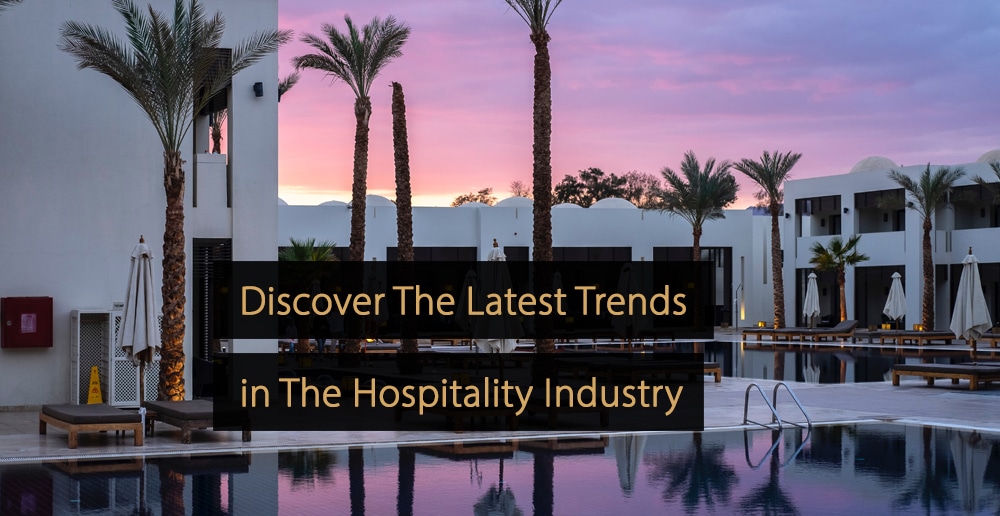
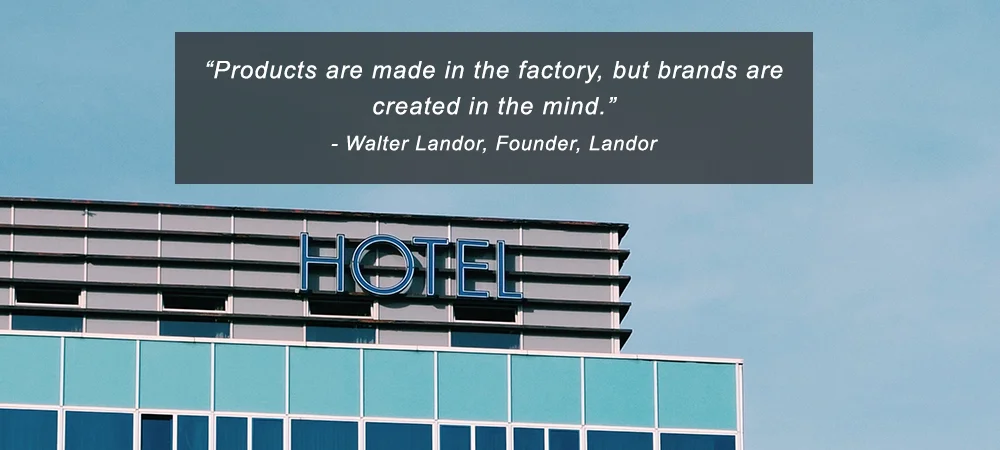
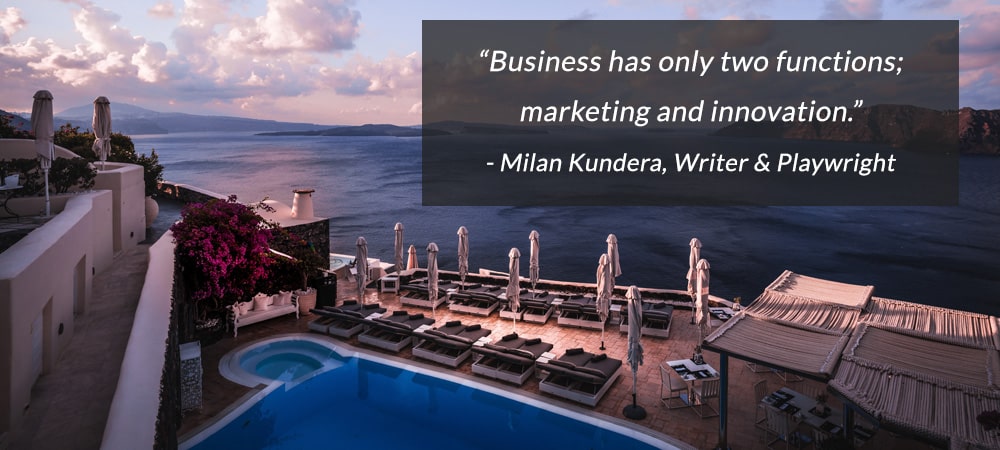
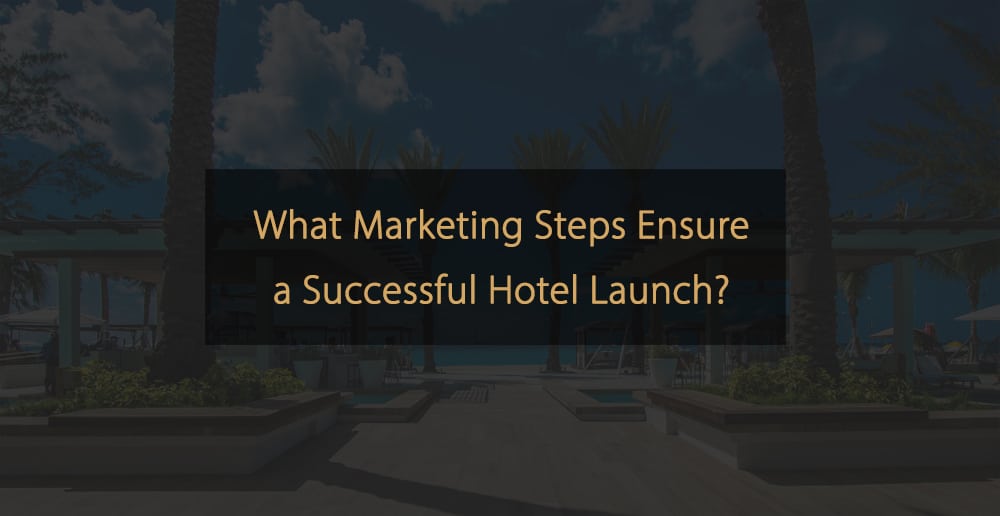

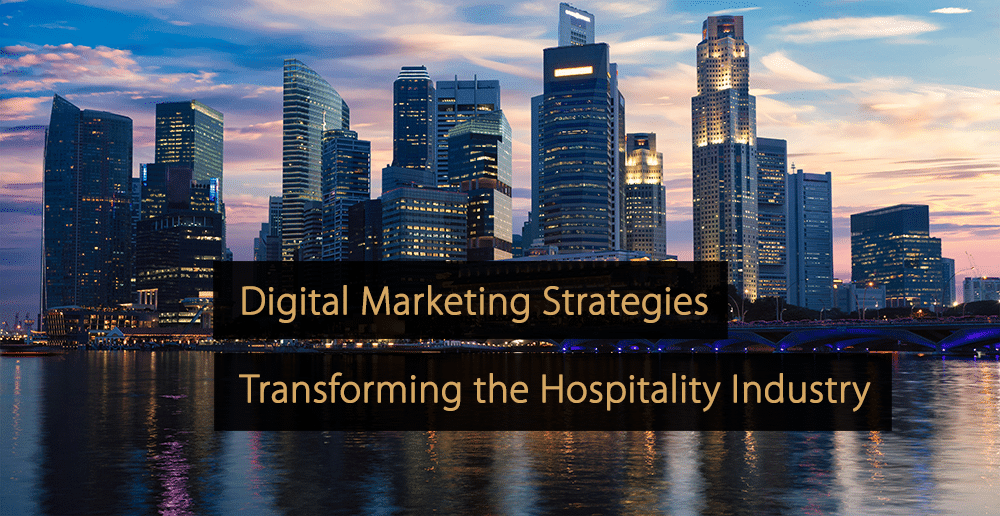
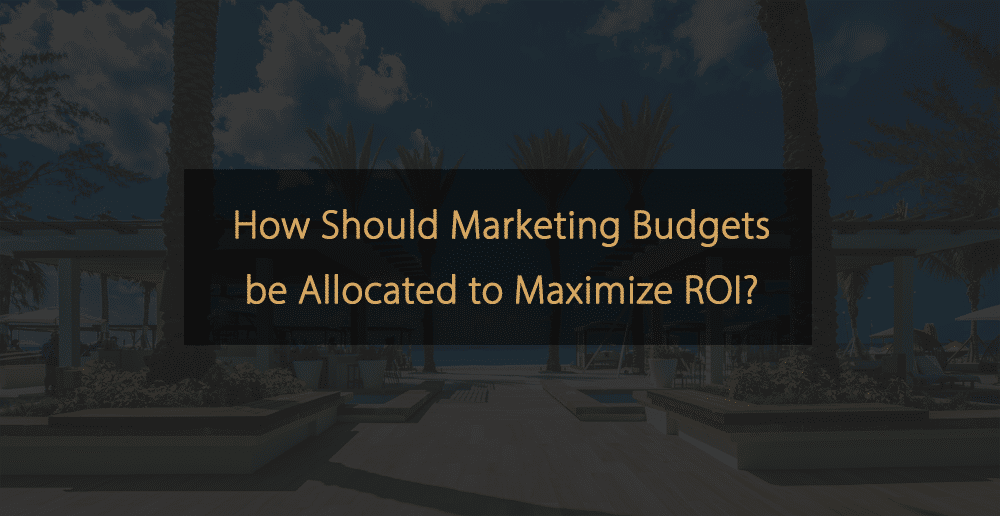
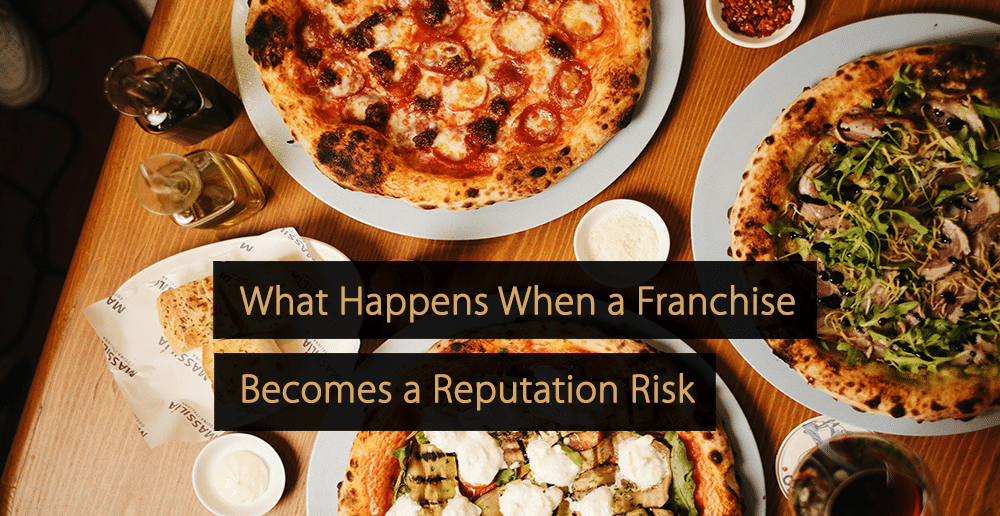
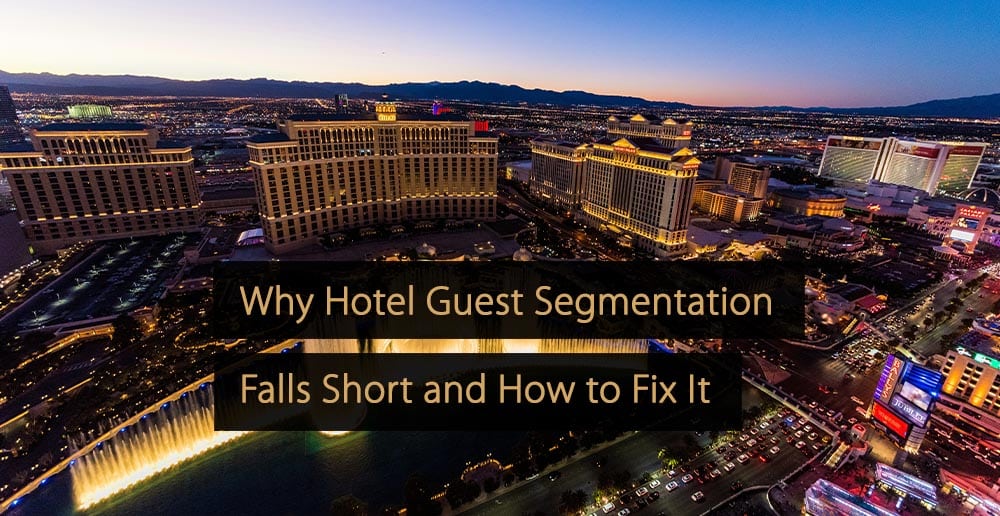
This was very helpful information about hospitality marketing that you provided within this article. Thank you for sharing such helpful information with us. Keep sharing more such articles with us in future.
These trends are quite useful for hospitality businesses seeking to improve their online marketing. You have suggested some really compelling examples in this article. Thank you for the helpful content, very nice work.
Thank you very much for sharing these ideas. I really appreciate your efforts for creating this exceptionally well content. I was looking for such content about hospitality marketing, you have really helped me with this article!
With this article, you will get to know more about hospitality marketing. This article is very helpful and informative for everyone. I loved reading this article and would recommend it to others.
Thank you for the well-written content and hospitality marketing tips. I love your blog and Thank you for sharing, and I am looking forward to more articles in future!
This is a very informative blog, thank you for sharing all these hospitality marketing tips. It will help a lot. I will bookmark your site; I hope to read more informative content like this in the future.
Revfine is a great source of knowledge; I think it will be helpful for a lot of people who are looking to learn more about hospitality marketing. Thank you very much for sharing this article!
Great blog post. You provided some detailed hospitality marketing tips. The article contains great visualization and the content is presented in a good manner. Thank you very much for sharing the article.
The future of AR is already here. To deliver quality AR experiences, hospitality companies will need to invest in edge computing frameworks that help them to deliver content to end-users with minimal latency. While 5G technology will certainly help to enhance AR functionality, the interactive nature of augmented reality devices will force hospitality businesses to rethink their overly centralized cloud computing networks in order to deliver content faster and gather data more efficiently.
Excellent article about hospitality marketing trends sir. Thank you for sharing your experience and research. May God strengthen your knowledge.
I’m excited to see what hospitality marketing trends will be popular in the upcoming year!
We’ll soon update the article with new marketing trends in the hospitality industry.